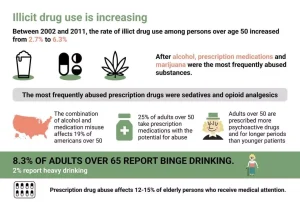
Alcohol can affect the blood in ways similar to blood thinning medication. If a person drinks alcohol before surgery, they may take longer to stop bleeding. Several antibiotics, antifungal drugs, blood pressure medications, and antidepressants can increase your chance of bleeding. This also includes nonsteroidal anti-inflammatory drugs (NSAIDs) such as Ibuprofen (Advil, Motrin) or Naproxen (Aleve).
Possible side effects of blood thinners
Fibrin is a protein formed during the clotting process that helps stop blood flow. Blood clotting is an extremely important function of the body that prevents bleeding. Without blood clotting, a small cut would cause serious, prolonged bleeding.
The Link Between Red Wine and Healthy Hearts
Approximately 1 to 2 drinks per day may have no effect on or lead to a slight reduction in stroke events; however, greater daily alcohol levels increase the risk for all stroke events and incident stroke types. In terms of stroke subtypes, compared with nondrinkers, current alcohol drinkers have an increased risk (~14 percent) for hemorrhagic stroke (Ronksley et al. 2011). Interestingly, the strength of this association was not consistent across different geographic regions. Alcohol use was protective blood thinners and alcohol against CHD for subjects in most countries, except for people of South Asian ethnicity living in South Asia (India, Bangladesh, Nepal, Pakistan, and Sri Lanka). INTERHEART results also suggested that the protective effect of any alcohol use against MI was greater in women and those over age 45. Finally, data from INTERHEART support the finding that the risk of MI is increased in the 24 hours after consumption of 6 or more drinks, suggesting that binge drinking increases MI risk (table 1).

Does alcohol increase heart rate?
These changes in the blood aren’t dangerous for most people, but those on anticoagulant medications (blood thinners) should limit their alcohol intake to one standard drink per day. In low to moderate alcohol consumption, antioxidants may provide some cardiovascular benefits. About 30 grams of alcohol — equating to two standard drinks — can lower fibrinogen levels, which can affect blood clotting. Alcohol and blood thinners interact in different ways that will vary for each individual.

- This type of blockage can lead to life-threatening conditions such as pulmonary embolism, stroke, or heart attack.
- In fact, excessive alcohol consumption can have negative effects on cardiovascular health.
- Medical staff can also help resuscitate anyone who’s experienced extreme blood loss.
- It’s important to note that the impact of alcohol on blood clotting can vary depending on several factors, such as the amount of alcohol consumed, the frequency of consumption, and individual differences in metabolism.
Alcohol’s Impact on Platelets
- In the coagulation cascade, damaged tissue sets off a cascade of events that activates several proteins in the blood, called clotting factors.
- Most likely, the decrease in contractility was offset by corresponding decreases in afterload (end-systolic wall stress), systemic vascular resistance, and aortic peak pressure, which maintained cardiac output.
What causes low platelet levels?

